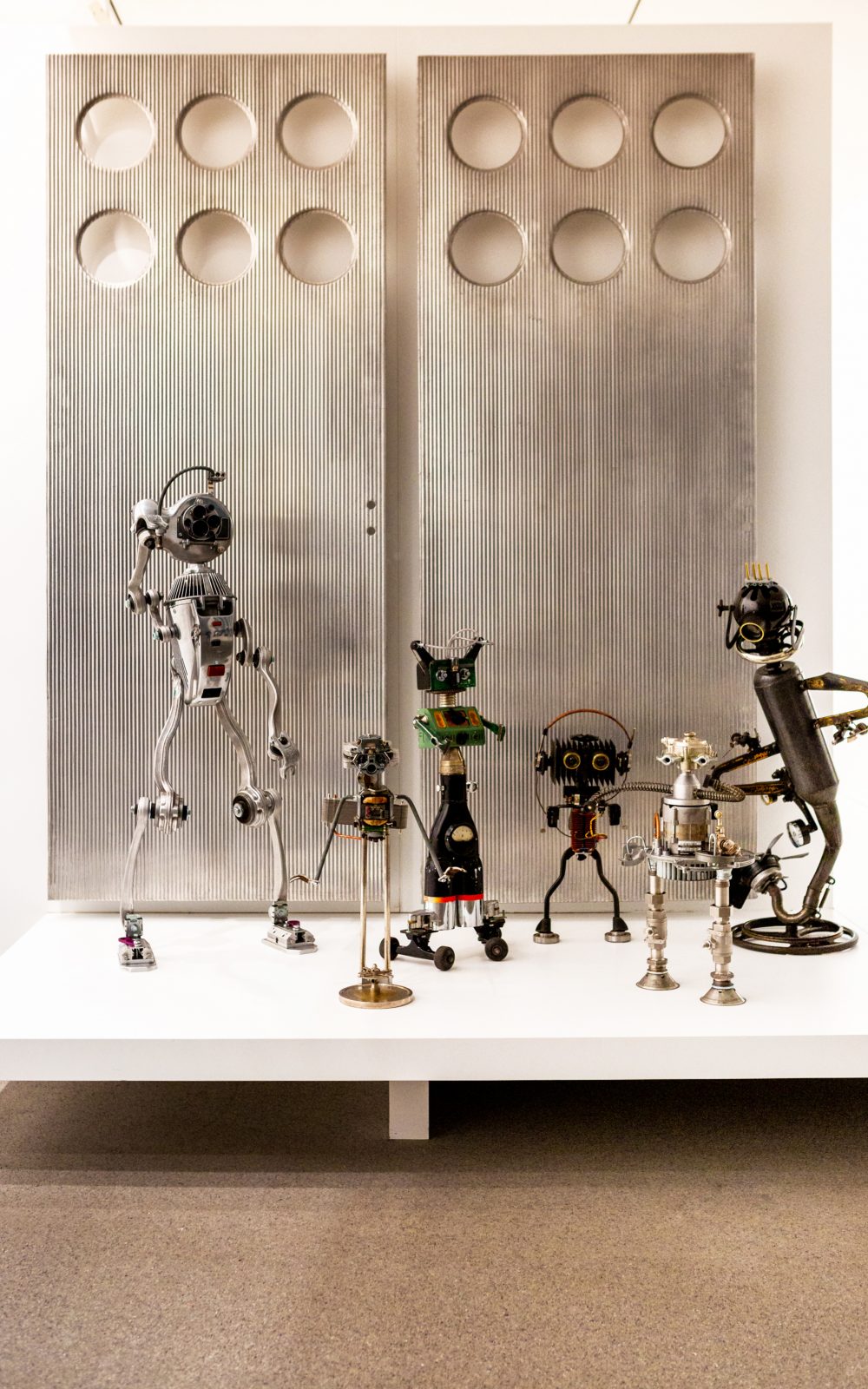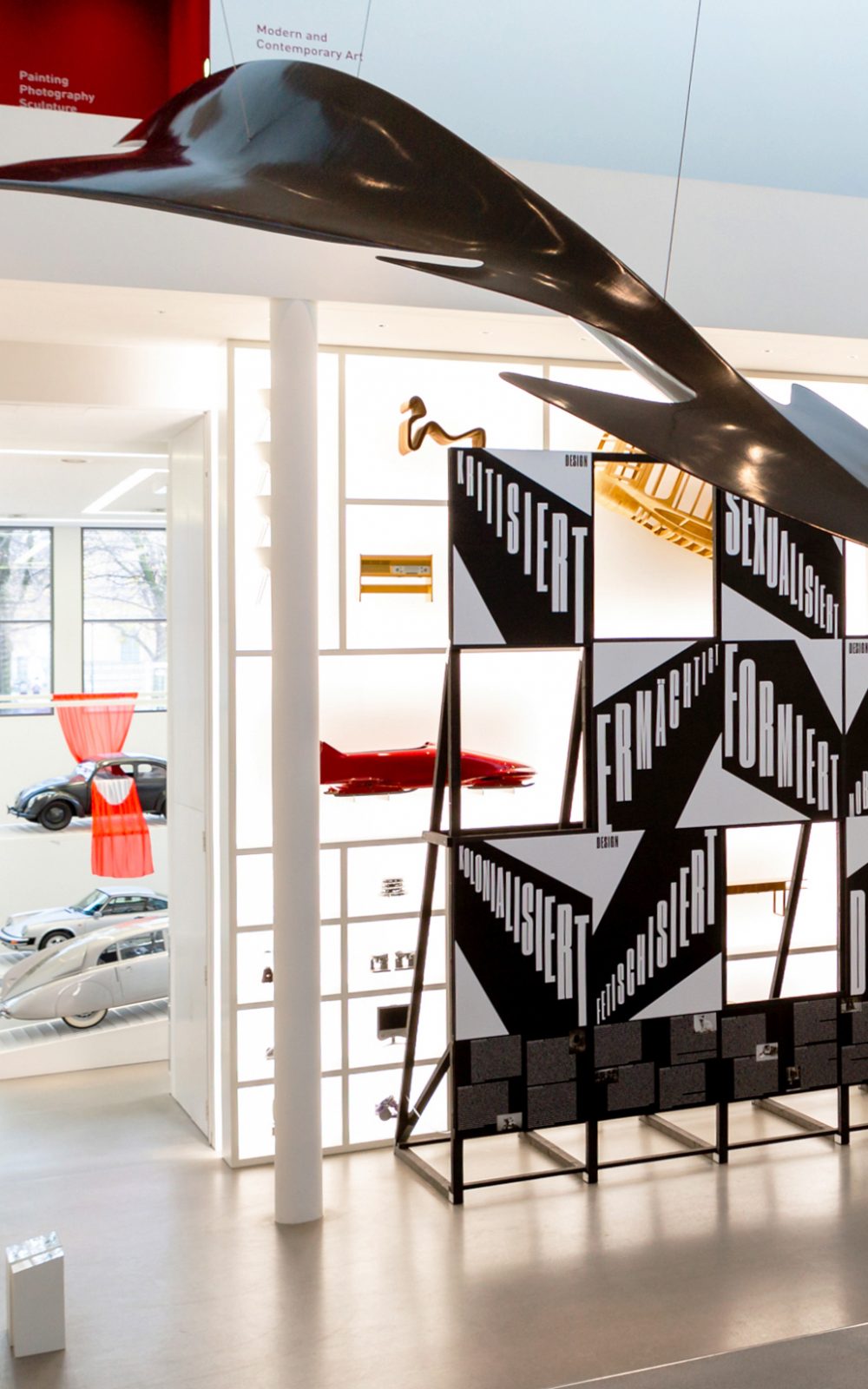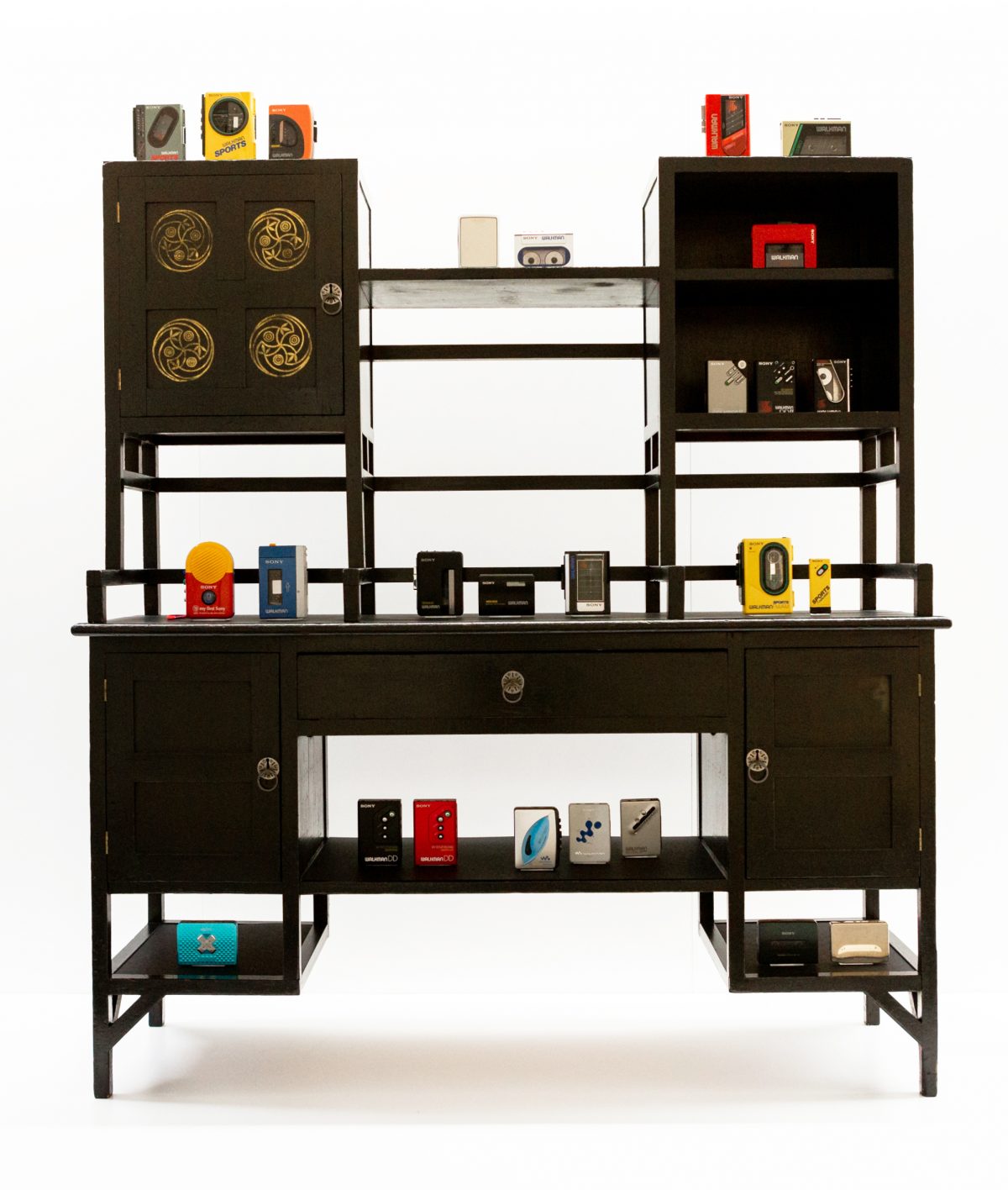Friedrich von Borries Politics of Design, Design of Politics
Friedrich von Borries
Politics of Design, Design of Politics
“Politics of Design, Design of Politics” is the programmatic title of the exhibition curated by Friedrich von Borries, which will be on display for ten months from November. The exhibition continues the series devoted to contemporary design positions in the Paternoster Hall, to which Die Neue Sammlung – The Design Museum has been inviting protagonists of international design annually since 2015.
After Konstantin Grcic, Werner Aisslinger, Hella Jongerius and Louise Schouwenberg, Friedrich von Borries will conceive a multi-part installation. In addition to the Paternoster Hall, it will for the first time also encompass the spaces housing the permanent exhibition.

The exhibition conceived by architect and design theorist Friedrich von Borries consists of three parts:
The first part – the engagement with “Politics of Design” – shows which political moment design contains within itself through a series of interventions in the museum collection. Theses such as “design sexualizes,” “design colonizes” and “design manipulates” offer a new perspective on Coca-Cola advertising, the Sony Walkman, and modernist furniture. Yet the interventionist stance also includes questioning the museum’s own power of interpretation. For this purpose, people were asked via an open call to bring objects to the museum; in September all participants then formed an independent jury. As a result, the museum is showing, among other things, models of vulvas, DIY furniture and urban gardening trash cans for the duration of the exhibition. The highlight of the engagement with the “Politics of Design” is the design model of a slide created by Friedrich von Borries for Thonet with a view to the company’s upcoming 200th anniversary. It addresses the fact that sitting down disciplines us and furthermore has a connection to possession – as seen in the German word “besitzen” – while also raising the question of how we get into dynamic movement from the static, persisting seated position.
Planning your visit
Today closed
Daily 10.00 – 18.00
Thursday 10.00 – 20.00
Monday closed
Barer Straße 40
80333 München
Sunday admission 1€
Thursday – Saturday 10€
reduced 7€
Day pass (Alte Pinakothek, Pinakothek der Moderne, Museum Brandhorst, Sammlung Schack) 12€
The second part of the exhibition is a subjective reflection on the work of Friedrich von Borries to date, displayed in the two paternoster elevators. By donating an artwork his heteronym, the artist Mikael Mikael, intervenes in the museum collection, while in a perpetuating, Sisyphean marble-run installation he also points to the fundamental dilemma of a politically active artist or designer, who will presumably never reach the – supposed – goal.
The third part – “Design of Politics” – looks at the possibilities for shaping and changing politics through design. What contribution can design make to the social and cultural development of a society? Workshops are to be held in the context of the exhibition as a discursive, public design process in cooperation with the Federal Agency for Civic Education (Bundeszentrale für politische Bildung /bpb). By means of an open call, interested citizens, activists, designers, artists and scientists are being invited to a series of workshops, a “base camp for democracy,” at which project ideas are to be jointly developed. The results will be discussed publicly with high-profile guests from the fields of politics, science and culture. A Facebook page with text recommendations, book reviews and expert interviews is to accompany the search movement. This process will be documented in the exhibition.
The results will be discussed publicly with high-profile guests from the fields of politics, science and culture. A Facebook page with text recommendations, book reviews and expert interviews is to accompany the search movement. This process will be documented in the exhibition.
The exhibition does not only address issues such as “surveillance,” “self-fulfillment,” “commodity,” and “market” against the backdrop of democracy as a form of government that is both worthy of protection and simultaneously in need of improvement. Indeed, with a view to the relationship between politics and design, it also raises the question as to which contexts designers and architects now need to navigate if they want their work to be politically responsible.
The catalog accompanying the exhibition will be issued by Koenig Books.
Supported by
PIN. Freunde der Pinakothek der Moderne
legero united the shoemaker | Initiator of contempus.eu
Leinemann-Stiftung für Bildung und Kunst
Cooperation partners:
Bundeszentrale für politische Bildung / bpb
Hochschule für bildende Künste Hamburg
Münchner Volkshochschule


